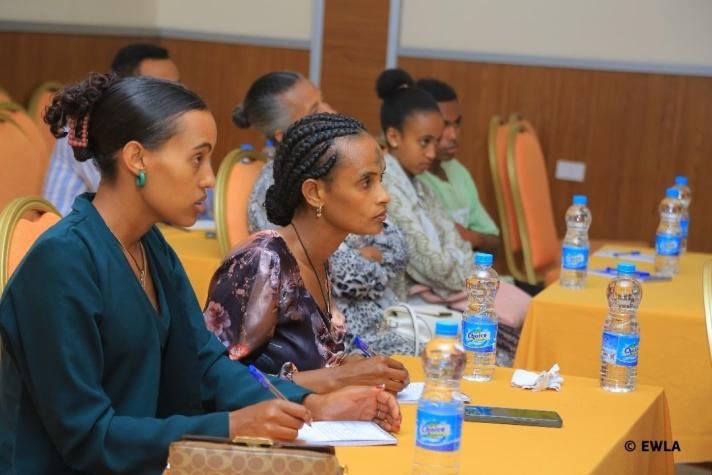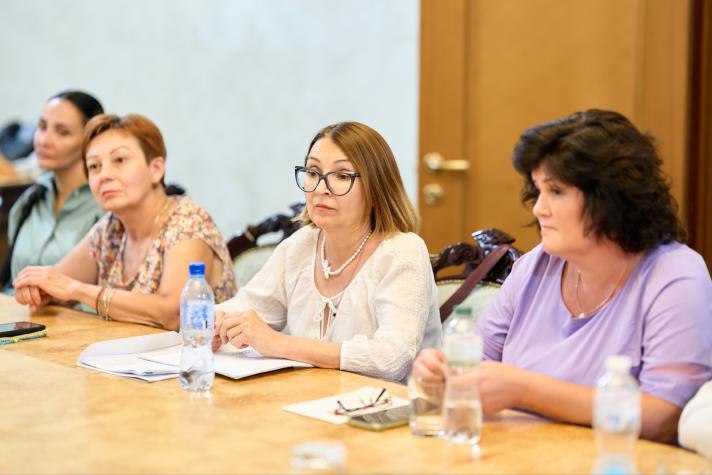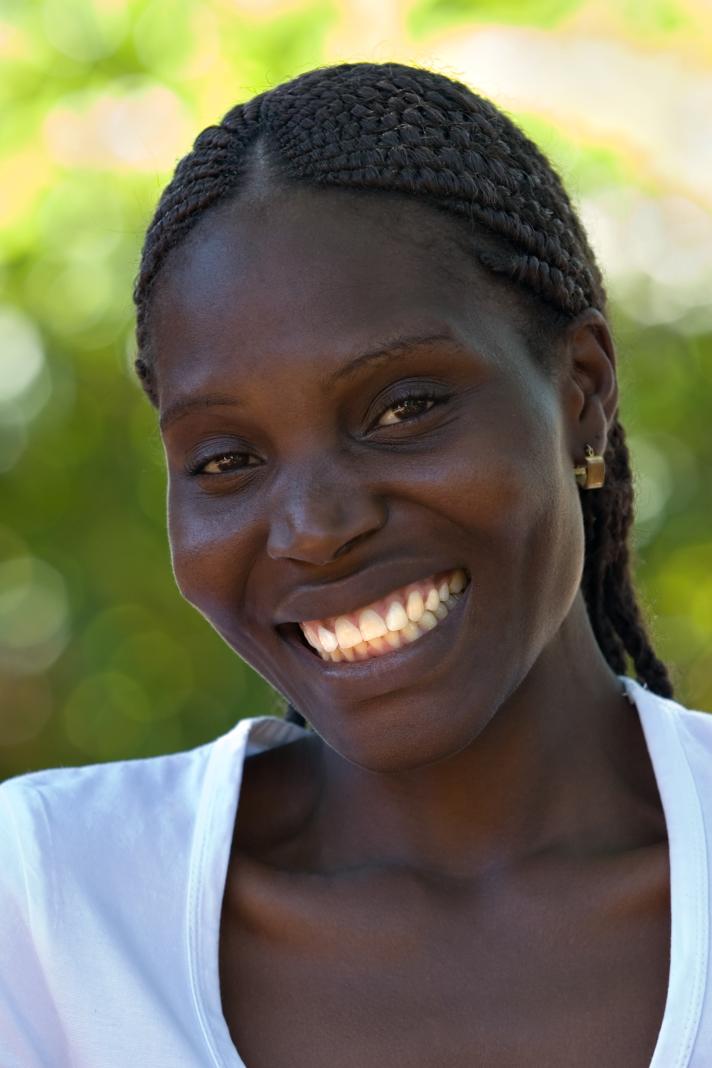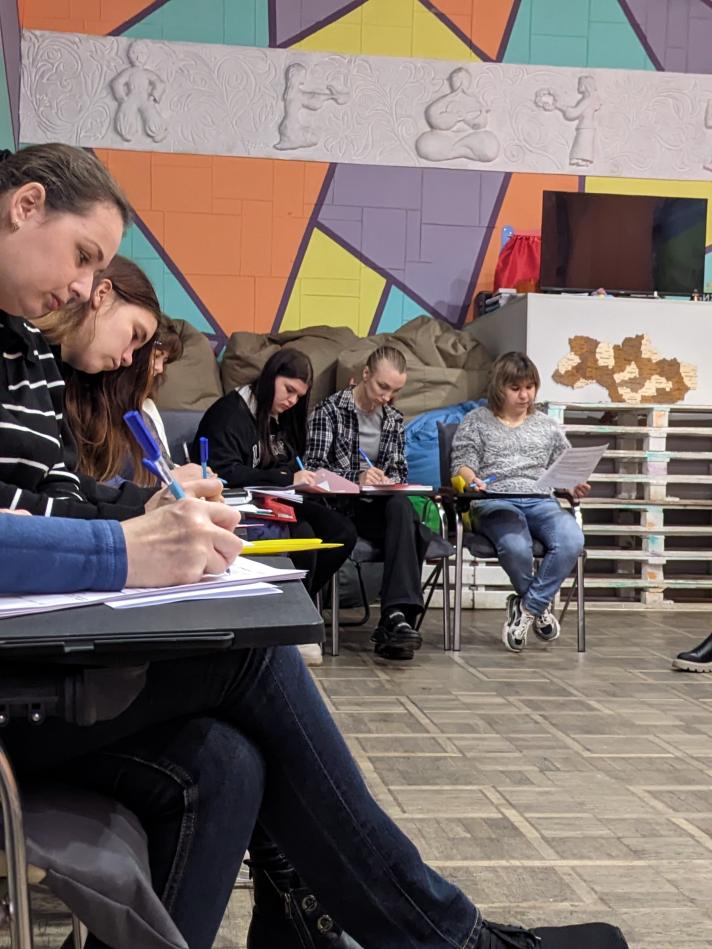
This year is particularly significant, marking 25 years since the United Nations General Assembly designated this date in memory of the Mirabal sisters, who were brutally assassinated in 1960.
Despite progress over the decades, violence against women and girls remains a grim reality worldwide also in 2024. Women in public roles—whether politicians, human rights defenders, journalists or housewives —are frequently targeted with intentional acts of violence. The situation is even more dire during conflicts. The European Commission’s Service for Foreign Policy Instruments (FPI) has been supporting the fight against violence against women and girls worldwide through its various projects. A few of them are highlighted below.
Supporting survivals of sexual and gender-based violence and contributing to peace-building efforts in Northern Ethiopia
The crisis in Northern Ethiopia, which began in November 2020, has exacerbated vulnerabilities, especially among women, girls, and marginalized groups. Violence, instability, social breakdown, and displacement have significantly increased the risk of Sexual and Gender-Based Violence (SGBV), with many survivors struggling to access support. FPI, through the crisis response mechanism has supported the non-governmental organisations Trocaire and Ethiopian Women Lawyer Association (EWLA), who in collaboration with local institutions and civil society organisations, have provided immediate assistance, including medical care, counselling, and legal aid, to help over 150,000 women and girls survivors as they embark on their journeys to recovery. This response goes beyond immediate relief; incorporating prevention, accountability, and empowerment efforts to heal communities, restore dignity to survivors, and contribute to long-term peace and stability in conflict-affected areas.
The project has demonstrated the critical importance of a comprehensive approach to SGBV in conflict and post-conflict contexts. By addressing the varied impacts of violence on individuals, families, and communities, it has supported broader healing and recovery. Collaboration across health, legal, economic, social and mental health services has been essential to ensure survivors receive holistic care. Engaging community members and leaders in these efforts has also proven to be crucial for challenging social and gender norms that may perpetuate violence, ultimately helping to build safer and more resilient communities. By investing in a comprehensive SGBV response, peace-building efforts supported by FPI in Northern Ethiopia have helped lay a foundation for healing and preventing further cycles of violence and moving toward recovery and sustainable peace.
Joining forces with the Global Survivors Fund (GSF) to support survivors of conflict-related sexual violence
The EU is committed to support victims of sexual violence in armed conflicts and contributes, together with the Global Survivors Fund (GSF) to guarantee their right to reparations. In 2023, the GSF achieved critical milestones in supporting survivors of conflict-related sexual violence in 27 countries. Reparative measures were co-created with survivors in countries like Guinea, the Democratic Republic of the Congo (DRC), and Ukraine, providing essential financial, psychological, and medical support. The projects included vocational training and legal aid, empowering survivors to rebuild their lives, often through small businesses that also uplift their communities.
Through the project Cooperating with the Global Survivors Fund (GSF) to support survivors of conflict-related sexual violence, we have helped national authorities strengthening their legal frameworks for reparations in DRC, Türkiye, Iraq, Nepal and Ukraine. In the latter, FPI has also funded a pilot reparations project, setting a precedent for survivor-centred reparations during active conflict, being the first time that a State is responding in real time to survivors of conflict-related sexual violence. These initiatives highlight our commitment to embedding survivors’ voices in policy, promoting sustainable reparations, and advancing impactful, survivor-led justice.
Training Mongolian peacekeepers to serve as agents for gender equality
A major milestone has been reached in our joint efforts to create a safer world for women and girls in Mongolia. Through FPI’s supported project the "Mongolian Peacekeepers as Agents for Gender Equality", 20 Mongolian peacekeepers have been trained in a specialized gender mainstreaming training in Slovenia, in collaboration with the Peace Operations Training Centre (POTC) of Slovenia and the Government of Mongolia. The training is designed to equip Mongolian peacekeepers with practical expertise in integrating gender sensitivity into peacekeeping operations and empower them as advocates for gender equality and human rights both within Mongolia and in the United Nations peacekeeping missions.
Additionally, following the initiative of the President of Mongolia and the Political Dialogue, Mongolia and the EU agreed to implement a joint initiative on gender and peacekeeping in 2024. This project enhances EU-Mongolia cooperation in peace and security, international law, while promoting gender equality in both society and the armed forces. These achievements are significant steps towards a safer and more just world for women and girls in Mongolia and beyond, in an effort to try to break the cycle of violence and abuse.
Advocating for an end to violence against women in political and electoral processes in Zimbabwe
In many countries worldwide women are exposed to various forms of violence in politics from physical, sexual to psychological violence due to gender factors and other norms of patriarchal societies that put women in disadvantage. The EU is committed to supporting peace and security worldwide, investing in initiatives that prevent conflict and support stability and advancing efforts to raise awareness and reduce violence against women in politics (VAWP), while increasing their political participation.
Through the Zero Tolerance to VAWP project which started in 2023, FPI, in close collaboration with the NGO MUSASA and Zion Christian Church, has been supporting UN Women, in their work on prevention of gender-based violence in Zimbabwe. Through the project women leaders have been empowered across various sectors, including the church, politics, the private sector, and civil society organisations. Women have been trained to develop action plans that boost political involvement and establish strategies to address and prevent violence against women in electoral processes.
Furthermore, because of multiple activities using art as a vehicle, communities are beginning to recognize the harmful effects of patriarchy in perpetuating violence, which often hinders women’s participation in elections. Theatre, roadshows, radio and TV programmes have reached more than 6260 people. In particular media campaigns were successful with a broad outreach of an estimated 5 million people across 59 districts via radio, television, print, and social media. The campaign included three TV dialogues, reaching 256,500 viewers, and 50 radio dialogues across four provinces with an estimated listenership of 4 million. Further, 12 public X-space dialogues engaged over 1,100 participants, while local radio stations aired anti-violence theatrical dramas in native languages, promoting peaceful participation and discouraging violence in the electoral process.
Responding to and countering conflict-related sexual violence in Ukraine
Russia’s war of aggression against Ukraine brings enormous suffering – and conflict-related sexual violence (CRSV) is among the darkest chapters of the Russian invasion. This is why FPI has mobilised, since in 2022, a crisis response measure with a EUR 6 million CRSV component.
With local partners like the Ukrainian Women’s Fund, La Strada and the Ukrainian Women’s Lawyers Association “JurFem” as well as international ones like the Special Representative of the UN Secretary-General on Sexual Violence in Conflict and the Global Rights Compliance, we support, among others, local feminist organisations from 14 regions of Ukraine, the office of the Prosecutor General in Ukraine and the Office of the Government Commissioner for Gender Equality and Policy of Ukraine.
In the margins of one of the projects La Strada developed a training course on CRSV issues for multi-sectoral specialists. In total, there were 84 thematic trainings and 1,850 specialists received training. The project facilitated five study visits for national and local specialists supporting CRSV victims to Switzerland, Croatia, Bosnia and Herzegovina, and the Netherlands, providing them with opportunities to learn from international expertise in the field. A special training course on CRSV issues has been developed for judges and is now part of their training programmes. Thus FPI’s support aims to simultaneously help bring perpetrators to justice, support survivors and create an institutional infrastructure where CRSV will receive the attention it will unfortunately need for the years to come.
Details
- Publication date
- 25 November 2024
- Author
- Service for Foreign Policy Instruments





